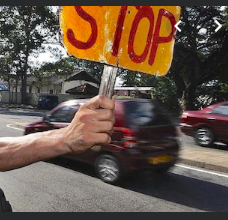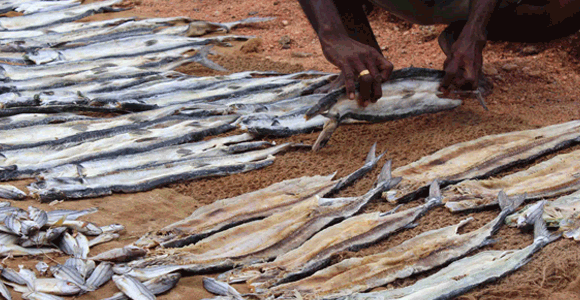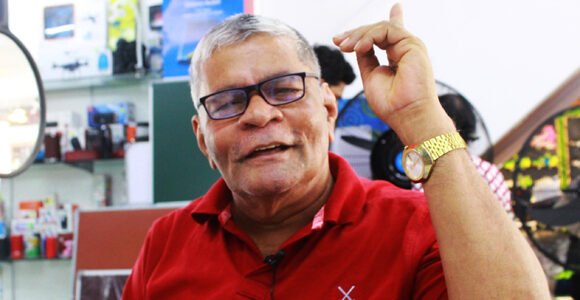
Identity Politics “I have no option but to leave the country”
K.BAANU
In conversations with people from all ethnicities in the country on their thoughts after the Easter Sunday attacks
“I travel by train daily. I also speak Sinhala and Tamil fluently. As such, I have many Tamil Sinhalese and Muslim train mates. We are very close and socialize often. We cut cake and celebrate our birthdays on the train. Then, everything changed after the Easter Sunday attacks. Now, I have no option apart from leaving this country,” said M. S. Fathima Nasriya (42), a Post Office employee.
Despite having studied in the Tamil medium, Nasriya used to communicate in Sinhala after her Ordinary Level and Advanced Level examinations. “I have been working in a post office for 23 years now. When I get a transfer to a new office, all who worked with me become tearful. However, it is sad to say that the same men who cried when they had to depart from me now hate the Abaya. They appear to suspect me like I am not their friend. Policemen and security guards on duty targeted and questioned me. “Who are you?”, “Where are you from?”, “Where are you going?”, “What is in your handbags?” etc. It was degrading. When I walk on the road, young motorcyclists shout out and ask me if I am Sharan. Now I keep my face down when I walk. Disputes can be settled with healthy negotiations, but mostly they accuse us in a very improper manner and we have no answers at all. They actually do not want to listen to us. How can I change this? I have no choice apart from leaving the country.”
———-
“Police officers at the checkpoints asked me if I am a Tamil and let me go ahead but stopped a Muslim friend who was behind me at the checkpoint. She had to answer many questions. The bus was about to leave but she was not released from the checkpoint. The bus conductor was in a hurry to go. My friend ran after the bus and managed to get into it. She was exhausted. I felt sorry for her. Others in the bus looked at her with suspicion. I felt helpless. The same thing happened to us a decade ago. Now my Muslim friend is the victim”, said Tharshika (not real name), a 24-year old university student.
“Then I was 14 years old. I am from Puttalam. I went to Chilaw from Munthal on a bus. They checked my bus at Bangadeniya checkpoint. I had no ID at that time. The minimum age for obtaining one is 16 years of age. They stopped and questioned. Even though I am Tamil, I speak Sinhala well. I am not a frequent visitor to Jaffna as it was not easy to go to Jaffna during the war. Police officers asked me several questions about the LTTE. They asked me if I was known to this and that person. They didn’t seem to care that I was a schoolgirl. The bus continued on its journey, leaving me behind. I was questioned for over an hour. Security forces insisted that I apply for a postal identity card to prove my identity in future. Someone who traveled on the same bus informed my father about the incident and he was able to come to the checkpoint and take me home. Since that day, I stopped wearing a pottu when travelling on a bus. The same thing is happening to Muslim girls today. We become powerless when our own ethnic identity becomes a threat to us.”
———-
Another story, told by Madhuranga (not real name), a self- employed businessman: “I have a habit of roaming around Colombo on motorbikes with my Muslim friends in the evenings. One day, we were stopped at a checkpoint. The police officers asked all of for our identity cards. On seeing my card and realizing I was Sinhala, the officers promptly took me to a side and asked me why I maintain a friendship with Muslims. “It may be dangerous for you,” they told me.“
———-
“This was the situation for Tamils before. There was a time when I was afraid to disclose my identity as a Tamil. Those were the days I used my University identity card to protect me from being suspicious,” said Jeyaraja Selvaruban, a prominent social researcher and a social activist. “Since I am Tamil, they allow me to go now, but stop my Muslim friends and question them. There is a suspicious perception of Muslims who come from the Eastern Province. ” Selvaruban said.
———-
The suspicion and questioning seem endless. Although people want to live in peace and harmony, some prefer to create differences; to divide and rule. People are trapped in this tragic situation. Generally, people celebrate their ethnic identities, but the present context prevents them from being proud of their identity when it becomes a threat to their own lives.
This article was originally published on the catamaran.com








